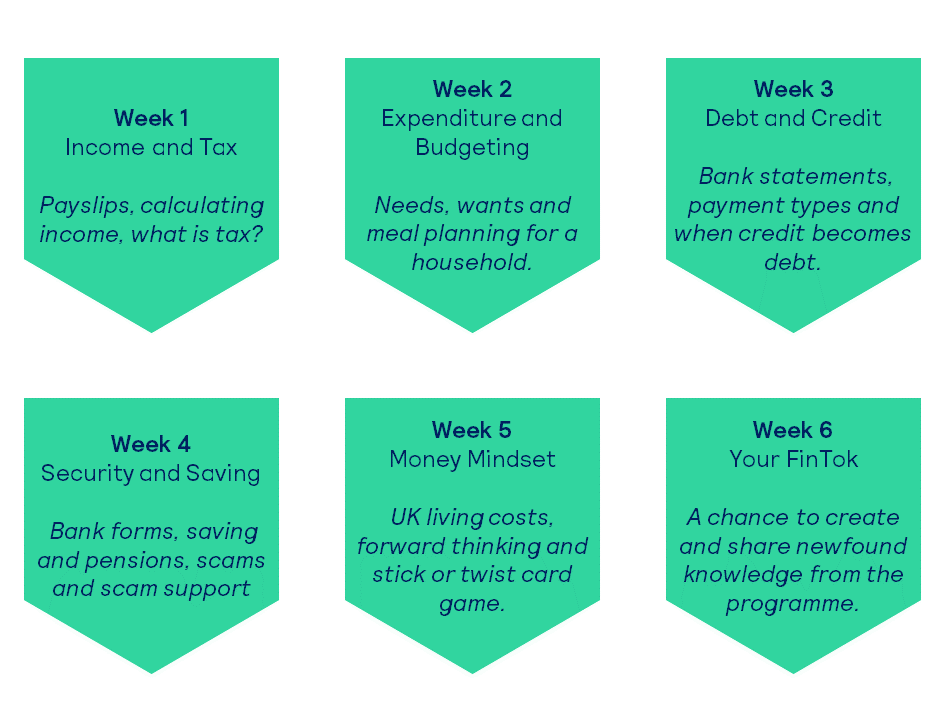Navigating the world of finances can be a daunting task for anyone, regardless of age or experience. Even people who consider themselves financially savvy can sometimes find themselves lost in the maze of jargon and complexities.
We understand how important it is to equip our young adults with the skills they need to confidently manage their finances and make informed decisions about their future.
Words that Count is our six session financial literacy programme designed for young people aged 15 to 19 that aims to put teenagers in control of their own financial destiny.

How do I talk to young people about their finances?
Awkward? Doesn't have to be! Here are four tips on how to start a conversation with your teenager about finance and managing money.
Watch FinTok
FinTok simply means finance TikTok, which is a particular space for content on social media that is all about money. It can be really helpful and shares some top tips on spending, saving and more.
We invited several TikTok creators (and parents) to start talking to their children and teens about money! Watch this mini series of videos that breakdown barriers when it comes to talking to young people about money.
Trust us!
Our Words for life page contains articles that will help you to learn about different key financial topics, with accessible information delivered by experts. Here is a list of pages to support you with your teens:
- Taking the next step
- Talking about credit cards with teens
- Talking about personal finances with teens
- Saving for the future
- Money support for parents
Here are some other topics that your teens (and you!) might find useful:
- What’s your money mindset?
- Understanding credit scores
- How should I pay my energy bills?
- Paying your bills
- Rent or buy: Your housing options
- Understanding your payslip
- Understanding your benefits
Avoid talking about money
That's right, ignore the numbers. Financial responsibility often comes with the decisions we make before we even think about the costs of something. It is important to explore the concept of ‘want’ versus ‘need’ to help young people prioritise and better understand how to manage their budgets, whatever size the budget might be.
- Discuss whether certain spends are wants or needs. Wi-Fi for example, in some contexts could be categorised as a want, but what if you work from home? Does that change the outcome? Here are some other expenditures you can ask them about: fast food, sports channel subscription, Netflix, owning a car, going on holiday.
- Create a budget plan for your household.
- Use an online supermarket website to help each other create a simple meal plan for the day or week. This will help them understand the value of items, begin to make choices and practise how to spread their expenditure over time.
- Discuss how money makes people feel. Present young people with scenarios and ask them how they would feel. This will help them to understand that often we attach emotions to our spending.
Lean on the experts
The topic of finance is massive and can feel daunting to approach, but there are many other opportunities to learn more about these tricky topics:
If you need to signpost your young people elsewhere to find more specialist support, The Mix is a UK based charity that provides free, confidential advice about many topics, including finance for young people under 25.
